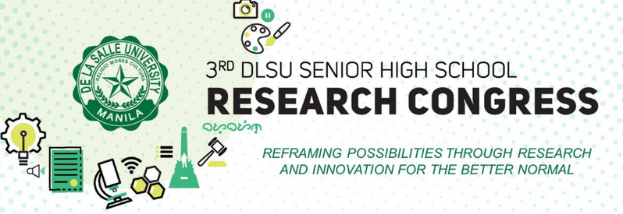Document Types
Paper Presentation
Research Theme (for Paper Presentation and Poster Presentation submissions only)
Gender, Human Development, and the Individual (GHI)
School Name
De La Salle University Integrated School, Manila
Research Advisor (Last Name, First Name, Middle Initial)
Sales, Nina Ana Marie Jocelyn, A.
Start Date
29-4-2021 1:00 PM
End Date
29-4-2021 3:00 PM
Abstract/Executive Summary
Decision-making is an essential factor for role-playing games (RPGs), especially in tabletop role-playing games (T.T.R.P.G.) like Dungeons & Dragons (D&D). The utilization of RPGs in the past was for studies performed on the rational decision-making processes involving land reformation. D&D aided in examining the player’s experiences when exploring oneself. Backed by previous studies, the research focused on the Rational Choice Theory (R.T.C.) and the Rational Choice Model (R.C.M.) to examine and calculate the benefits derived from the decisions made by the experienced and inexperienced players within a D&D campaign. The research team used R.C.M. to assess whether or not the decision-making process aided both types of players to reach their goals in the game. A one-shot D&D campaign was held across eight (8) different groups composed of five to seven mixed types of players within two days to gather the necessary data necessary for the assessment. Though a slight gap was discovered in-between the rational decision-making process of experienced and inexperienced players, the findings still verified that the former tended to make more informed and rational decisions while prioritizing efficiency in finishing the campaign within the given time frame rather than the inexperienced players. As observed, the latter possessed similar goals for most of the campaign period but were inclined to act more based on impulse.
Keywords
Decision-Making Skills; Rational Choice Theory (R.C.T.); Dungeons and Dragons (D&D); Psychology; Table-Top Role-Playing Games (T.T.R.P.G.)
Initial Consent for Publication
yes
Tactics & Tenacity: The Effects of a Fantasy-Based Tabletop Role-Playing Game on the Decision-Making Skills of Young Adults
Decision-making is an essential factor for role-playing games (RPGs), especially in tabletop role-playing games (T.T.R.P.G.) like Dungeons & Dragons (D&D). The utilization of RPGs in the past was for studies performed on the rational decision-making processes involving land reformation. D&D aided in examining the player’s experiences when exploring oneself. Backed by previous studies, the research focused on the Rational Choice Theory (R.T.C.) and the Rational Choice Model (R.C.M.) to examine and calculate the benefits derived from the decisions made by the experienced and inexperienced players within a D&D campaign. The research team used R.C.M. to assess whether or not the decision-making process aided both types of players to reach their goals in the game. A one-shot D&D campaign was held across eight (8) different groups composed of five to seven mixed types of players within two days to gather the necessary data necessary for the assessment. Though a slight gap was discovered in-between the rational decision-making process of experienced and inexperienced players, the findings still verified that the former tended to make more informed and rational decisions while prioritizing efficiency in finishing the campaign within the given time frame rather than the inexperienced players. As observed, the latter possessed similar goals for most of the campaign period but were inclined to act more based on impulse.


